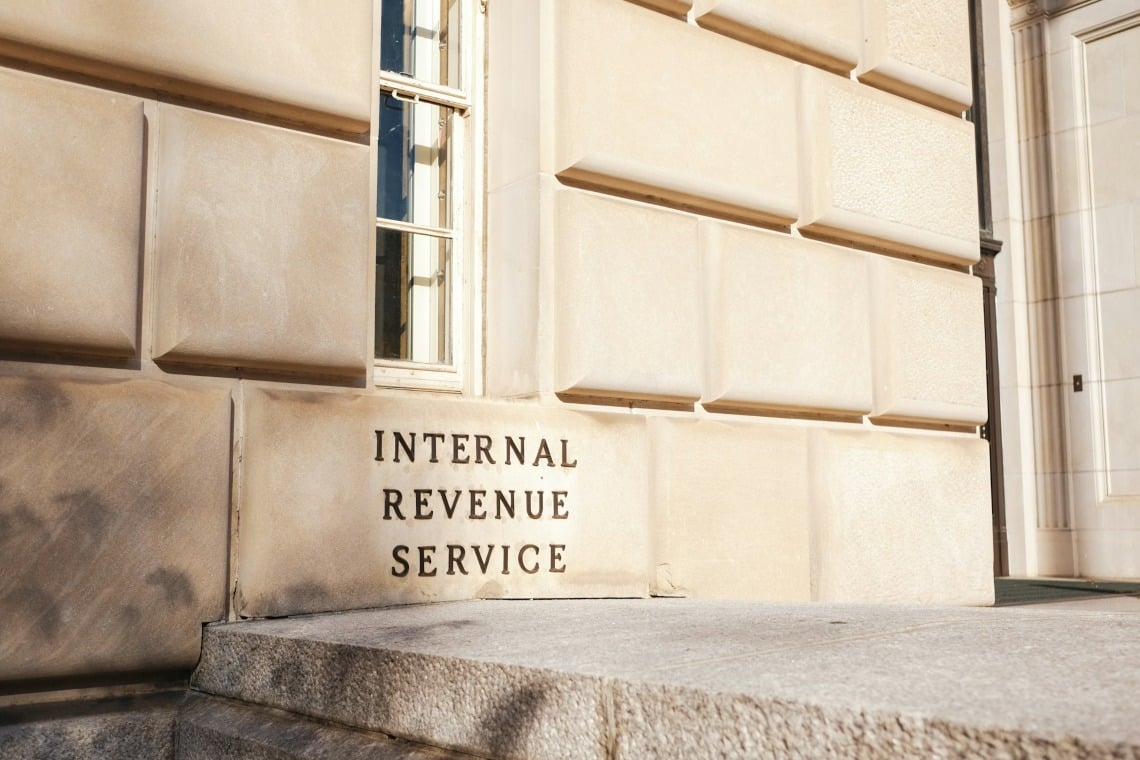The Internal Revenue Service (IRS) of the United States has recently issued new regulations that impose stringent obligations on financial brokers, including the front-ends of Bitcoin and DeFi platforms. This move has sparked protests from the Blockchain Association, which argues that such rules could have a negative effect on the technological development of the country.
Let’s see all the details below.
The US IRS issues new rules for Bitcoin and crypto: DeFi platforms are considered on par with financial brokers
On December 16, 2024, the IRS introduced new regulations that extend the definition of financial brokers to platforms operating in decentralized finance. The regulation, published in the Official Gazette no. 294, requires brokers to report detailed data on clients and their gross proceeds.
In particular, DeFi front-ends are now required to collect and report identifying information about their users, in addition to documenting all transactions and earnings obtained through their services.
This means that those decentralized services that have so far been distinguished by the factor of privacy will be obliged to employ KYC recognition practices, the same reporting rules as traditional financial transactions.
The government agency clarified that it is discussing rules that have been applied to brokers for over 40 years, claiming that there are no biases of any kind.
Furthermore, he stated that:
“The only participants in DeFi who are treated like brokers […] are the front-end trading service providers”.
The document does not directly apply to all decentralized finance (DeFi) applications, ensuring compliance with the principle of decentralization as with Bitcoin.
The reporting obligations concern only the front-end platforms that facilitate transactions involving digital assets for customers, such as DEX.
However, there are no exceptions based on whether the platform in question operates through a legal entity or through open source code.
The new rules will begin to apply to the sales of digital assets starting in 2027. Brokers will need to start collecting and reporting the necessary data for digital asset transactions starting in 2026. It is estimated that there are between 650 and 875 brokers, who will be affected by these IRS regulations, in addition to 2.6 million taxpayers.
This is seen as a step towards combating tax evasion and improving transparency in the Bitcoin and cryptocurrency sector.
The Blockchain Association protests against the IRS broker regulation
The new IRS regulations regarding brokers have been met with concern by the Bitcoin community and privacy experts, who fear a negative impact on decentralization and technological innovation.
The Blockchain Association, an organization that represents the main blockchain companies and projects, has expressed strong opposition regarding this.
The association argues that these regulations are too burdensome and do not take into account the unique characteristics of DeFi platforms.
Furthermore, it believes that the obligation to collect and report user data is a violation of privacy and a hindrance to the expansion of new technologies in the United States. According to the Blockchain Association, DeFi platforms operate in a radically different context compared to traditional financial brokers.
The decentralized nature of these platforms makes it difficult, if not impossible, for the front-end to collect and report the required information.
Regulation could push developers and innovators to move their activities outside of the USA, harming the development of the Bitcoin and crypto sector in the country. Kristin Smith, CEO of the Blockchain Association, stated that the IRS regulation violates the Administrative Procedure Act and is unconstitutional.
These are his words of disapproval towards the stringent regulation on brokers:
“We stand alongside the innovators of our country and will continue to work to ensure that the future of cryptocurrencies and DeFi is here in the United States.”
On the other hand, the Department of the Treasury and the IRS do not agree that these regulations reflect a bias against the DeFi sector.
Some code developers, like Alex Pertsev of Tornado Cash, have already been sanctioned in the past for the way their software was used.
Now, however, there is a risk that regulators will violate the rights of DeFi users and impose increasingly vigorous centralized control as the years go by.
This regulation could harm the development of the crypto sector
As mentioned, the new IRS regulations could have significant negative consequences not only on Bitcoin, but on the entire cryptocurrency sector. Firstly, they could discourage the use of DeFi platforms by users concerned about the privacy of their data.
The mandatory collection of personal information could drive away many users, thus reducing the adoption and use of DeFi technologies within the country.
Decentralized platforms might have to dedicate excessive resources to regulatory compliance, greatly limiting technological development.
The developers and entrepreneurs might be less inclined to launch new projects in the United States, preferring jurisdictions with more favorable regulations.
This could lead to a decrease in the competitiveness of US companies in the global cryptocurrency landscape, benefiting the BRICS rivals.
To highlight, furthermore, the introduction of these regulations could create an environment of regulatory uncertainty, due to the difficulty of classifying the various “broker DeFi”.
It is not excluded that the rigidity of the IRS may lead to a future ban towards decentralized front-end applications.
Hayden Adams, CEO of Uniswap Labs, has publicly expressed his disapproval of the obligation to implement a KYC interface.
The developer of the main DEX in the crypto industry hopes that the regulation will be rejected through the congressional review act.
Adams also referred to the difficulty in determining whether a user utilizing a Defi Dapp is located in the United States or not.
This could lead crypto brokers aiming for compliance to extend KYC to customers worldwide.
According to the expert, this would violate the rights of billions of people around the world to access DeFi according to their own laws.
